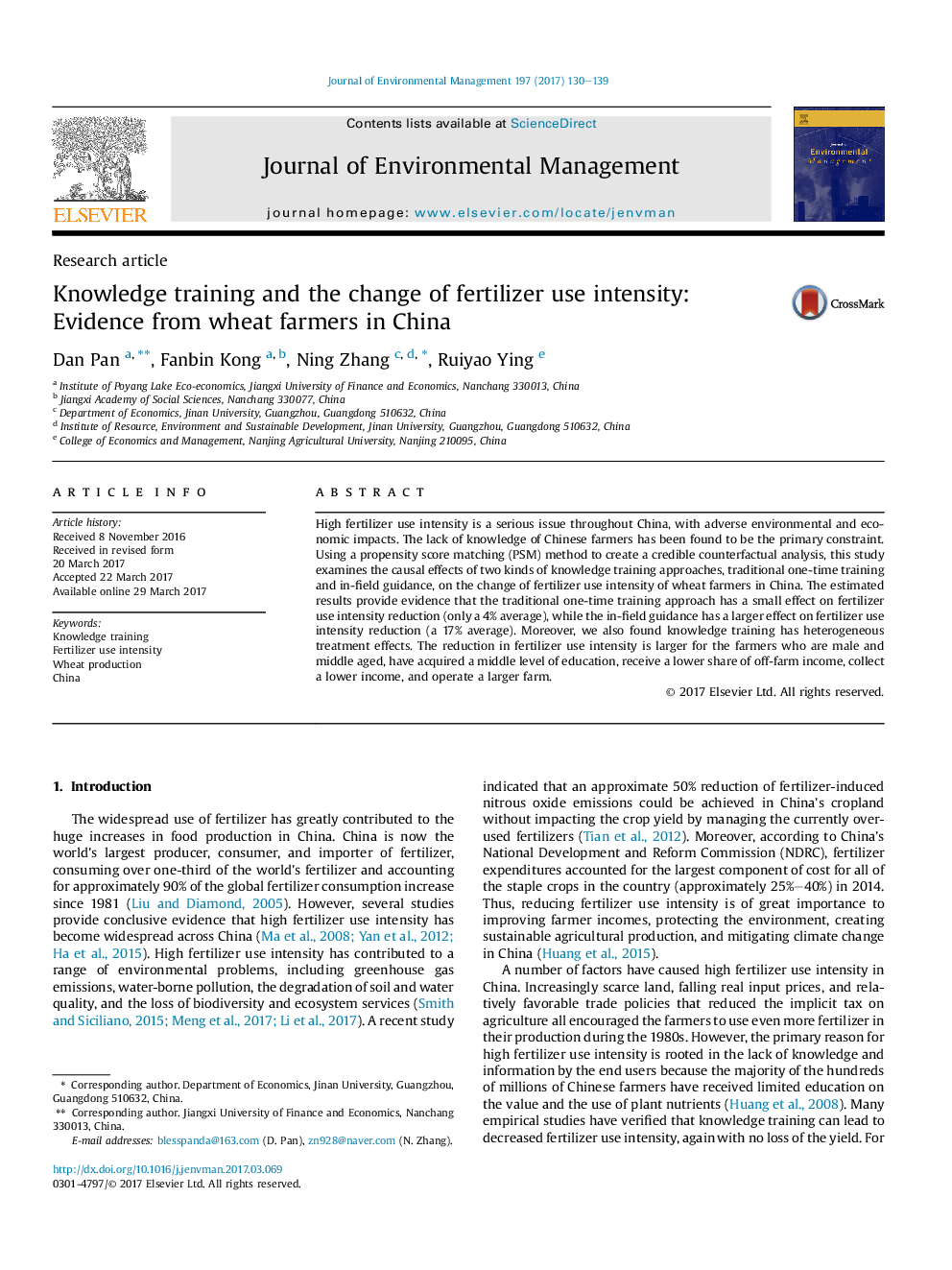| Article ID | Journal | Published Year | Pages | File Type |
|---|---|---|---|---|
| 5116940 | Journal of Environmental Management | 2017 | 10 Pages |
â¢The causal effects of two kinds of knowledge training approaches on the reduction of fertilizer use intensity is identified.â¢The traditional one-time training approach has a small effect on fertilizer use intensity reduction.â¢The in-field guidance has a larger effect on fertilizer use intensity reduction.â¢Knowledge training has heterogeneous treatment effects.
High fertilizer use intensity is a serious issue throughout China, with adverse environmental and economic impacts. The lack of knowledge of Chinese farmers has been found to be the primary constraint. Using a propensity score matching (PSM) method to create a credible counterfactual analysis, this study examines the causal effects of two kinds of knowledge training approaches, traditional one-time training and in-field guidance, on the change of fertilizer use intensity of wheat farmers in China. The estimated results provide evidence that the traditional one-time training approach has a small effect on fertilizer use intensity reduction (only a 4% average), while the in-field guidance has a larger effect on fertilizer use intensity reduction (a 17% average). Moreover, we also found knowledge training has heterogeneous treatment effects. The reduction in fertilizer use intensity is larger for the farmers who are male and middle aged, have acquired a middle level of education, receive a lower share of off-farm income, collect a lower income, and operate a larger farm.
